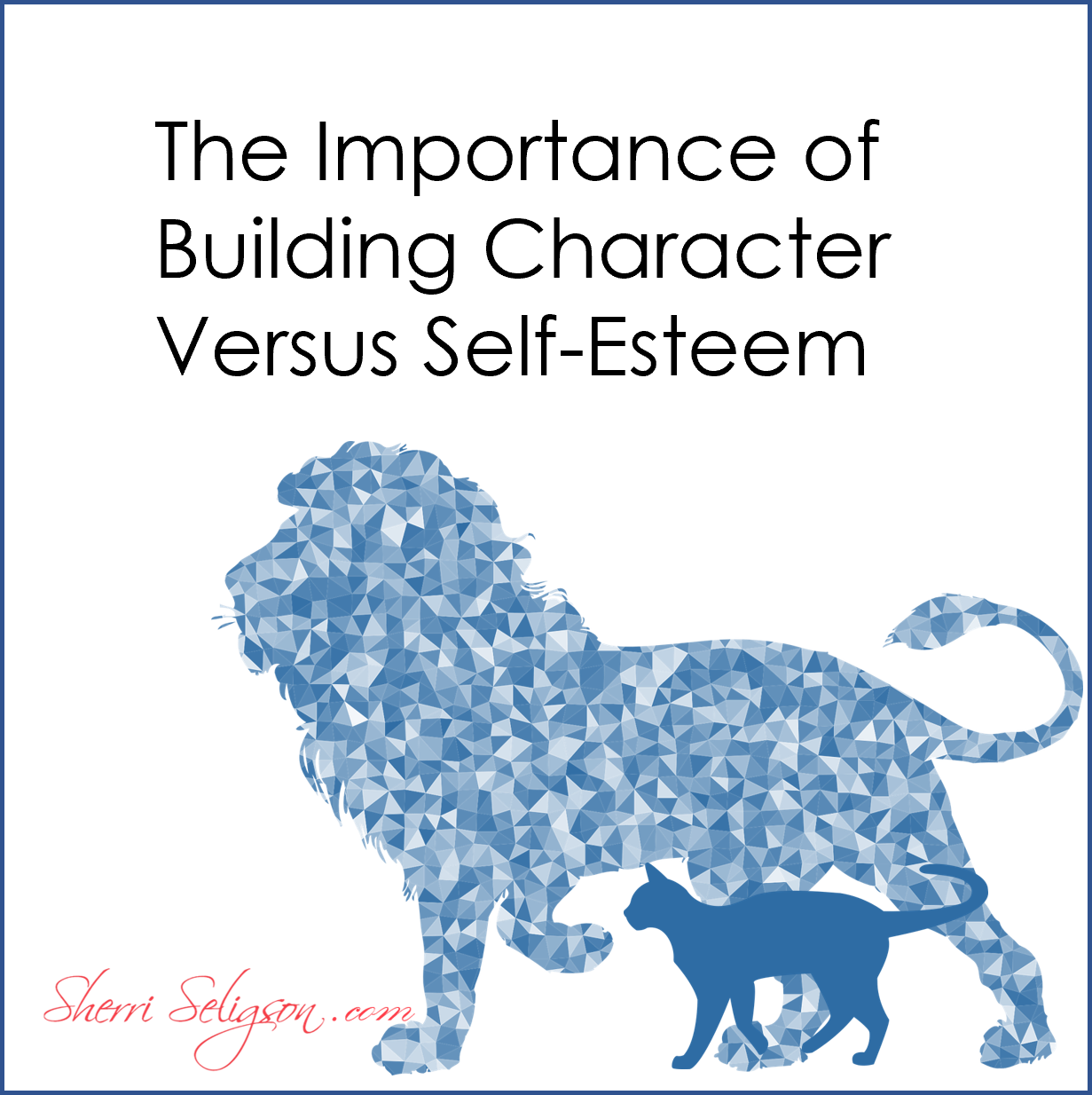The Difference Between Building Character versus Self-Esteem
The importance of “self” is a popular concept in our modern western culture. Much of it is a heartfelt attempt to encourage people to realize how important they are. And that is good.
The problem is that this idea is often taken too far, especially with the coined term “self-esteem.” The idea of self-esteem has to do with how we value ourselves and how valuable we think we are to others. So to build up how a person feels about themselves, they are encouraged to surround themselves with those who lift them up and stay away from those who treat them badly.
In order to build self-esteem in students, schools and sports groups focus on making all experiences positive ones. Now, some of these are good ideas. Such as developing a student’s talents or encouraging them to make good choices without letting others force them into doing what they know to not be right.
But as this idea becomes the focus, students are surrounded by continuous rewards (even if the merit is not great). They are told to only do things they enjoy or things that make them feel good.
Now it doesn’t take much for us adults to see the problem with that. I, for one, do NOT enjoy doing my taxes. And changing dirty diapers is not my first choice for things that make me feel good. Some things in life (many things, actually) don’t make us feel good while we are doing them, but they are good for us in building strength (like exercising), fulfilling a greater purpose (like raising a child), or keeping us out of jail (like doing taxes)!
Continuous focus on self-esteem tells a student, “I am amazing!”
But when you drill into someone how amazing they are, they begin to take the position, “I am amazing, so what can YOU do for ME?”
That, my friends, feeds entitlement.
A better way to build up our children is not to fill them up with esteem for themselves but rather to build character in them.
What is character? It is the mental and moral qualities distinctive to an individual. In the 1600s, character was associated with the sum of qualities that defines a person, including one’s intellect, thoughts, motives, temperament, judgment, behavior, and more. And the most critical quality associated with a person’s character was self-mastery, which is the control of an individual over his impulses and desires. Not the other way around.
Can you see how this is opposite of self-esteem? Self-esteem says “I want to do this because it makes me feel good…therefore I will do it.” Character says “I have a gut desire to do this, but I know it to have negative results…therefore I will NOT do it.”
You see, with self-mastery, or solid character, a person has control over himself and can direct his will and make his own choices instead of being controlled by his base impulses.
By building character in ourselves and in our children we learn that GOD is amazing, and I am special to Him because He made me and loves me. Character says I am special, but it is not because of anything I have done. It is because of what God has done.
Self-esteem says, “I am amazing, so what can YOU do for ME?” Character says, “I am amazing because an awesome God created me and loves me, so what can I do for HIM?”
See the difference?
One of the best things you can do for your children is to work to build character in them. Model it. Weave it into day-to-day activities. When you see someone behaving selfishly in public, explain to your children what would be a better way to behave.
And, of course, fill them with scriptural truths such as this one:





